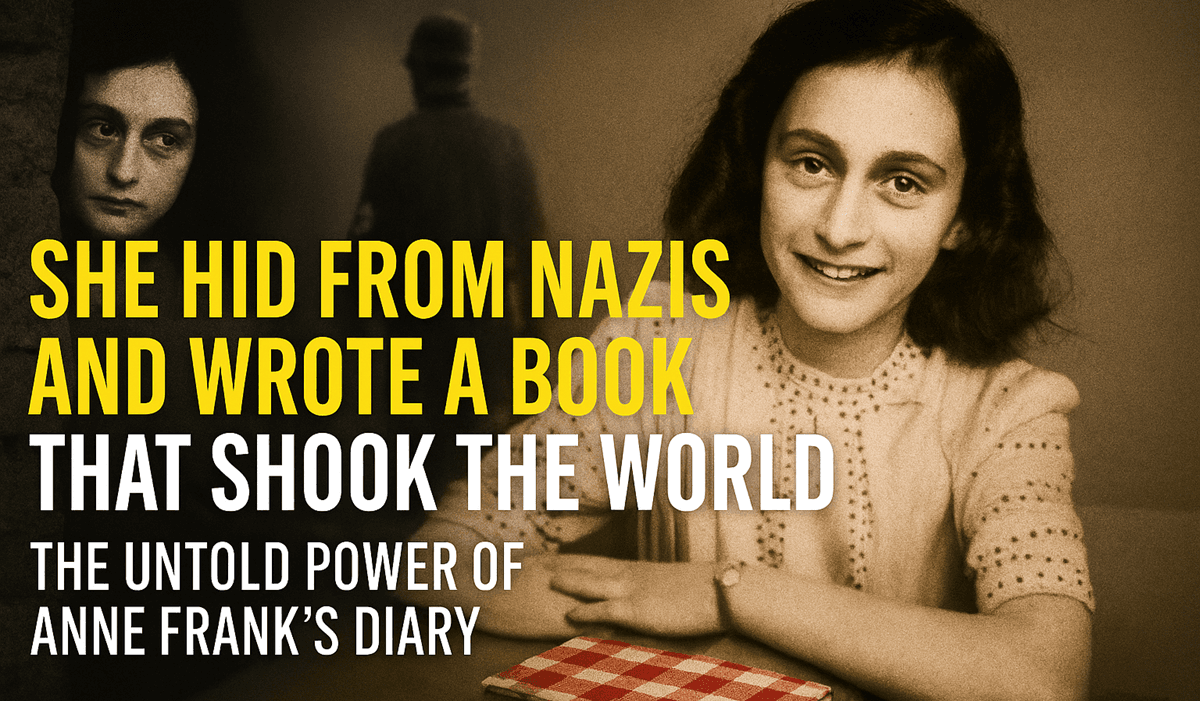In the cramped quarters of a secret annex in Amsterdam, a thirteen-year-old girl began writing what would become one of the most influential books in human history. Anne Frank's diary, originally titled "Het Achterhuis" (The Secret Annex), offers an intimate glimpse into life during one of humanity's darkest periods.
The Historical Context: Amsterdam Under Nazi Occupation
When the Frank family went into hiding in July 1942, the Netherlands had been under German occupation for over two years. Jewish families faced increasingly harsh restrictions, making the decision to hide a matter of survival. The secret annex, located behind Otto Frank's business premises at 263 Prinsengracht, became home to eight people for more than two years.
Anne Frank: Beyond the Diary
The Young Author's Background
Born in Frankfurt, Germany, in 1929, Annelies Marie Frank moved to Amsterdam with her family when she was four years old. Her father, Otto Frank, established a business in the Netherlands, hoping to escape the rising antisemitism in Germany.
Life in the Secret Annex
The diary reveals the daily challenges of eight people living in confined spaces:
The constant fear of discovery
Rationed food and limited supplies
Tensions between the inhabitants
Anne's personal growth and reflections on humanity
Literary Significance and Themes
Universal Coming-of-Age Struggles
Despite the extraordinary circumstances, Anne's diary captures universal teenage experiences:
Identity formation and self-discovery
Conflicts with parents and authority figures
First love and romantic feelings
Dreams and aspirations for the future
Hope Amid Despair
One of the most striking aspects of the diary is Anne's persistent optimism. Her famous observation about believing in the goodness of people, despite witnessing humanity's capacity for evil, continues to resonate with readers worldwide.
The Power of Writing
Anne's diary demonstrates how writing can serve as:
A form of psychological survival
A means of processing trauma
A way to maintain hope and humanity
A bridge between past and present
Global Impact and Legacy
Educational Importance
The diary has become essential reading in schools worldwide, serving as:
A primary historical source about the Holocaust
An accessible entry point for young readers to understand WWII
A tool for teaching tolerance and human rights
A catalyst for discussions about prejudice and discrimination
Cultural Influence
Anne Frank's story has inspired:
Numerous stage adaptations and films
Museums and educational centers globally
Human rights initiatives and foundations
Continuing dialogue about genocide prevention
The Diary's Publication Journey
After the war, Otto Frank, the sole survivor from the annex, fulfilled his daughter's dream of becoming a published writer. The diary was first published in Dutch in 1947 and has since been translated into over 70 languages, selling more than 30 million copies worldwide.
Modern Relevance: Why Anne Frank Matters Today
Contemporary Parallels
In an era marked by:
Rising antisemitism and hate crimes
Refugee crises and displacement
Political polarization and extremism
Social media echo chambers
Anne's message of hope, tolerance, and human dignity remains profoundly relevant.
Educational Initiatives
Modern educational programs use Anne Frank's story to:
Combat prejudice and stereotyping
Promote critical thinking about propaganda
Encourage empathy and understanding
Foster discussions about moral courage
Visiting Anne Frank House: A Pilgrimage Site
The preserved secret annex in Amsterdam attracts over one million visitors annually, serving as a powerful reminder of the Holocaust's human cost and the importance of protecting democratic values.
Lessons for Future Generations
The Importance of Bearing Witness
Anne's diary exemplifies the crucial role of personal testimony in preserving historical memory and preventing the repetition of atrocities.
Individual Agency in Dark Times
Despite her youth and circumstances, Anne maintained her moral compass and belief in human goodness, demonstrating that individuals can preserve their humanity even in the darkest circumstances.
The Responsibility of Memory
The diary challenges readers to:
Remember the victims of persecution
Stand against injustice in their own communities
Protect the rights of minorities and vulnerable populations
Ensure that "never again" becomes more than just a slogan
Conclusion: An Enduring Testament
"The Diary of a Young Girl" transcends its historical context to speak to universal human experiences and values. Anne Frank's voice continues to inspire readers to choose hope over despair, understanding over hatred, and courage over complacency.
Her words remind us that even in humanity's darkest hours, the human spirit can endure, dream, and believe in a better tomorrow. In our current global climate, Anne Frank's message is not just relevant—it's essential.
The diary stands as both a historical document and a call to action, challenging each new generation to build a world where such hiding places are never again necessary, and where every young person can write their dreams in freedom.
This article serves as an introduction to Anne Frank's remarkable diary. For the complete experience, readers are encouraged to explore the original text and visit educational resources dedicated to preserving her legacy.


